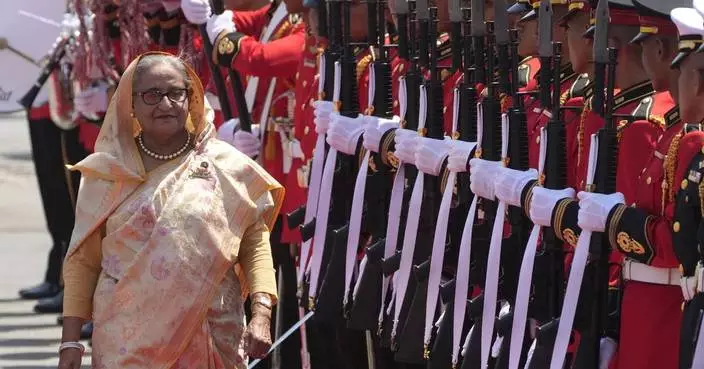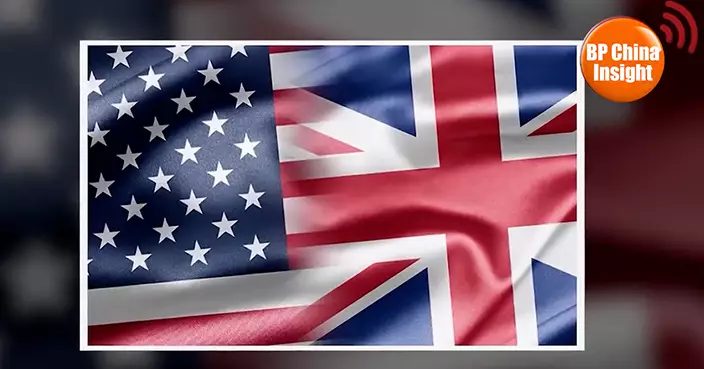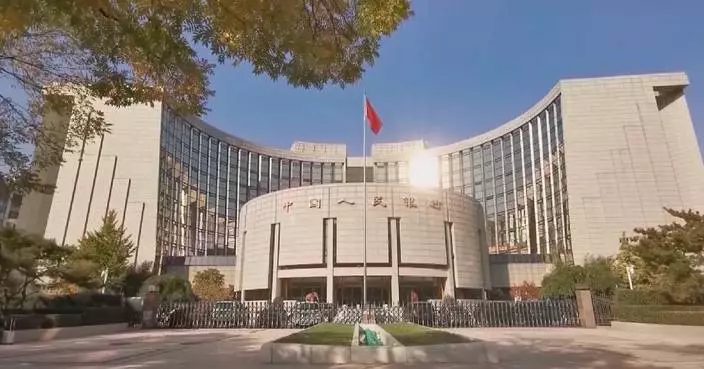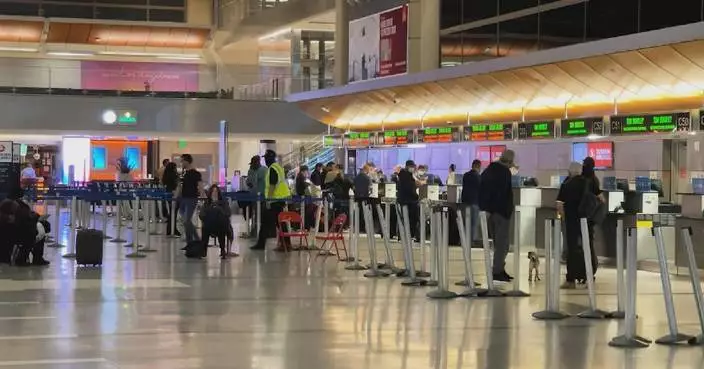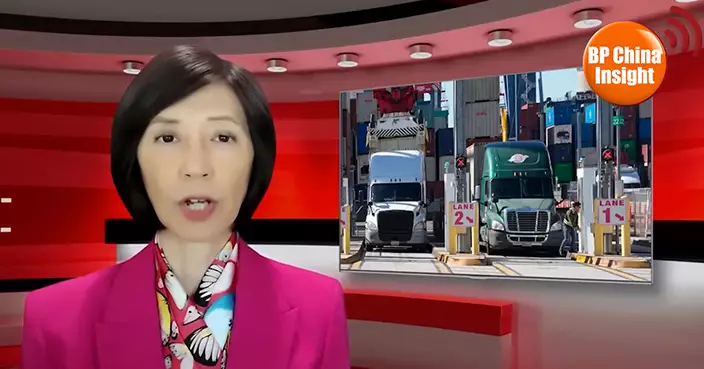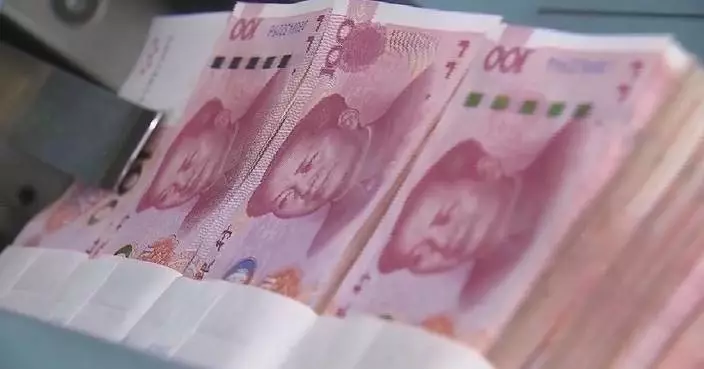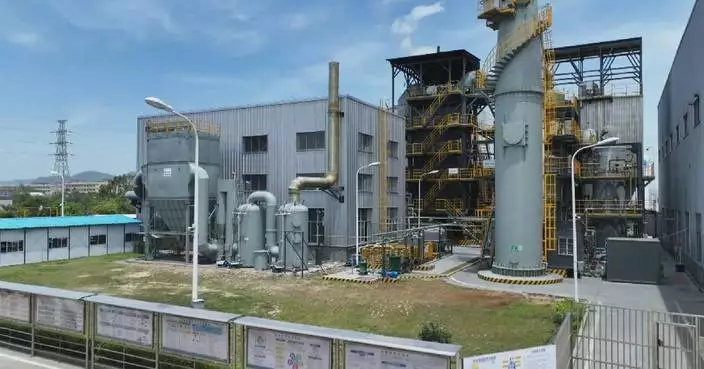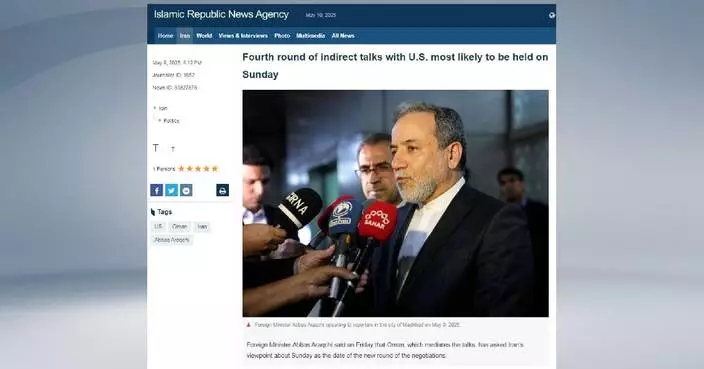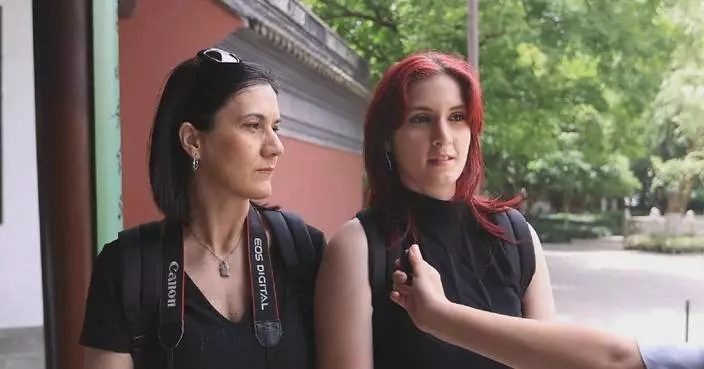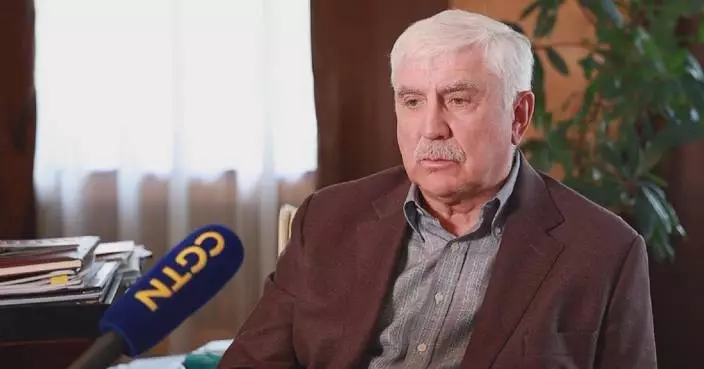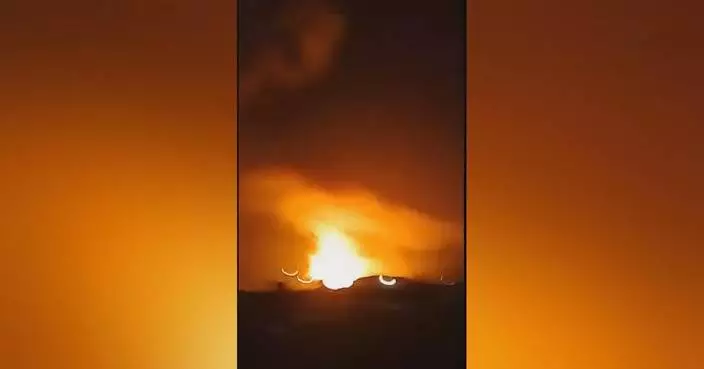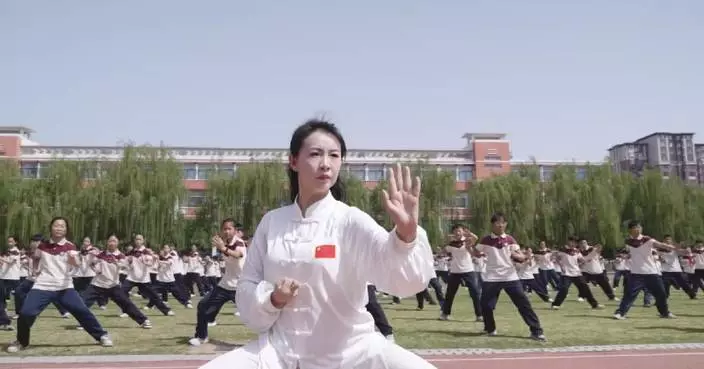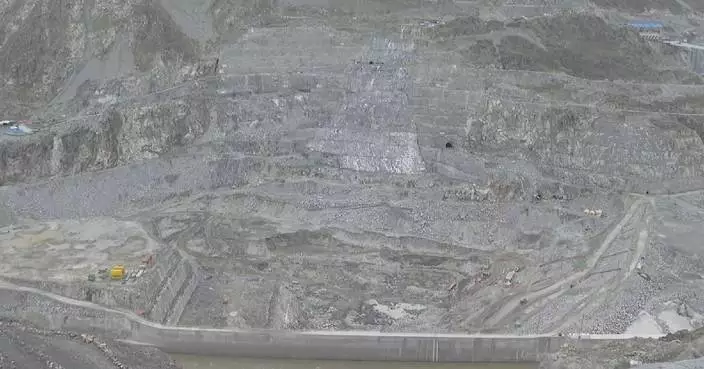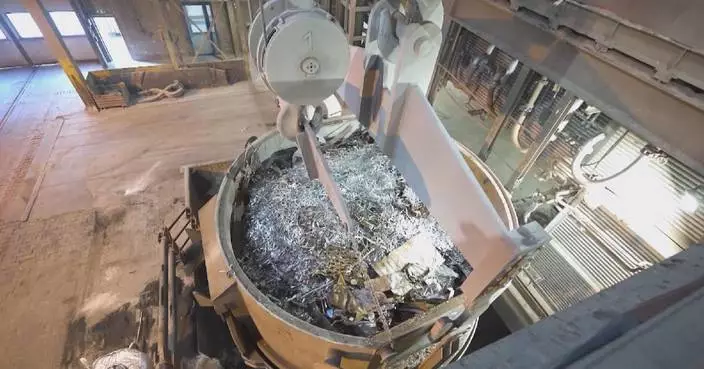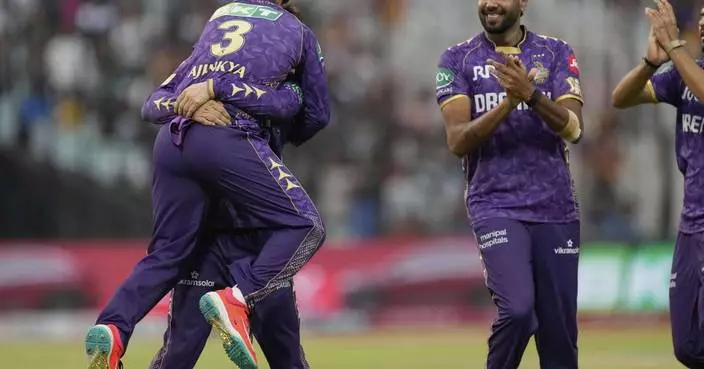LOS ANGELES (AP) — The arrest of five people in the overdose death of Matthew Perry has revealed key details about the final days of the “Friends” star, most of them spent in the throes of an addiction to the surgical anesthetic ketamine.
Perry would die at age 54 on Oct. 28 after telling his assistant to shoot him up “with a big one.” Drawn from unsealed federal court documents and a medical examiner's investigation, here's a chronological look at the end of Perry's life.
Click to Gallery
FILE - Actor Matthew Perry participates in the BUILD Speaker Series to discuss the mini-series "The Kennedys After Camelot" in New York on March 30, 2017. (Photo by Evan Agostini/Invision/AP, File)
United States Attorney Martin Estrada, at podium, is joined by Los Angeles Police Chief Dominic Choi, far left, and other officials to announce court filings related to the death of actor Matthew Perry in Los Angeles on Thursday, Aug. 15, 2024. (AP Photo/Damian Dovarganes)
FILE -Matthew Perry appears at the premiere of "Ride" in Los Angeles on April 28, 2015. (Photo by Rich Fury/Invision/AP, File)
'Shoot me up with a big one': A timeline of the last days of Matthew Perry
'Shoot me up with a big one': A timeline of the last days of Matthew Perry
FILE - Actor Matthew Perry arrives at the 64th Primetime Emmy Awards in Los Angeles on Sept. 23, 2012. (Photo by Jordan Strauss/Invision/AP, File)
September 30 — Perry and his live-in personal assistant, Kenneth Iwamasa, met at their home in the Pacific Palisades neighborhood of Los Angeles with Dr. Salvador Plasencia. Perry had been receiving ketamine treatments for depression — an increasingly common off-label use — from his regular doctor, but wasn't able to get as much as he wanted. Plasencia texted a doctor friend in San Diego, Mark Chavez, who agreed to obtain ketamine for him.
“I wonder how much this moron will pay,” Plasencia texted Chavez. The two met up the same day in Costa Mesa, halfway between Los Angeles and San Diego and exchanged at least four vials of ketamine.
Plasencia returned to Perry's house, where Iwamasa paid him $4,500 in cash for the vials. Plasencia gave Perry two injections of ketamine, and instructed Iwamasa on how to give the injections to the actor. Plasencia texted Chavez that the experience “felt like a bad movie.”
October 2 — Iwamasa texted Plasencia saying he wanted to buy not just injection sessions, but to be left with more vials of ketamine, referring to it in agreed-upon code as “dr pepper.” Plasencia appeared, gave Perry the injections, and left behind the vials of the anesthetic.
October 4 — Iwamasa injected Perry himself for the first time. He texted the doctor that he had found “the sweet spot” to put the needle into his boss, but that trying different spots on Perry had led to them running out, and they needed more. Plasencia texted Chavez asking if he could keep supplying the drug so they could become Perry's “go-to.”
October 6 — Iwamasa told Plasencia they were running low, and needed more. Plasencia went to Perry's house and sold him one or more vials.
October 8 — In a late night meetup at a Santa Monica shopping plaza, Plasencia sold Iwamasa four vials of ketamine for $6,000 in cash.
October 10 — Iwamasa drove Perry to a public parking lot in Long Beach, where they met up with the doctor. He sold them more ketamine, and gave an injection to Perry while the actor sat in a car. On the same day, Iwamasa sought even more of the drug from an additional source of ketamine, reaching out to Erik Fleming, an acquaintance of Perry.
October 11 — Fleming messaged Iwamasa that he can get ketamine from a woman he knows. “It’s unmarked but it’s amazing – he take one and try it and I have more if he likes," Fleming wrote. The woman, Jasveen Sangha, was known to her customers as the “Ketamine Queen.” Fleming texted Iwamasa that she only deals "with high end and celebs. If it were not great stuff she’d lose her business.”
October 12 — Plasencia went to Perry's house, where he was paid $21,000 in cash, some of it owed to him for previous ketamine buys. While there he injected Perry. The actor immediately froze up and his blood pressure spiked. The assistant said the doctor told him, “let's not do that again.”
October 13 — Perry got a sample of Sangha's ketamine and tried it. He and Iwamasa would ask for 25 vials of it, for which he would pay $5,500. Fleming dropped it off at Perry's house a day later.
On or around Oct. 20 — Perry received his last legal ketamine treatment from his regular physician, according to what a woman close to him whose name was redacted in official documents told medical examiner's investigators. The woman said his previous doctor had given him treatments every other day, but his new doctor said Perry was doing well, his depression was managed, and he no longer needed so many treatments. The woman would tell investigators that she had believed Perry had been sober for 19 months and there had been no relapse.
Around October 24 — Perry talked to the unidentified woman for the last time. She told investigators he had been in good spirits.
October 25 — Iwamasa asked Fleming for another 25 vials of ketamine. After picking up $6,000 from Perry, Fleming picked up the ketamine from Sangha, who told him her own source is known as “Master Chef." Meanwhile, Iwamasa gave Perry at least six shots of ketamine.
October 26 — Iwamasa again gave Perry at least six shots of ketamine.
October 27 — The assistant again gave the actor at least six shots of ketamine. With the supply coming from Fleming and Sangha, Perry and Iwamasa had been out of touch with Plasencia for about two weeks. Plasencia would text Iwamasa saying he had more to offer: “I know you mentioned taking a break. I have been stocking up."
About 8:30 a.m. — Acting at Perry's direction, using syringes from Plasencia and ketamine from Sangha, Iwamasa gave Perry an injection.
About 11 a.m. — Perry played pickleball, according to what Iwamasa told medical examiner's investigators later in the day, though many elements of that initial story changed in his later talks to prosecutors.
About 12:45 p.m. — Iwamasa gave Perry his second shot of the day, and the actor began watching a movie.
Shortly before 1:30 p.m. — Iwamasa gave Perry his third and final injection of the day while Perry sat at his backyard jacuzzi. “Shoot me up with a big one,” Iwamasa remembered Perry telling him. The assistant then left to run errands.
About 4 p.m. — Iwamasa returned home to find Perry face down in the jacuzzi. He jumped in, pulled Perry to the steps and called 911. Paramedics arrived minutes later and declared Perry dead. Coroner's investigators would say ketamine was the primary cause of his death, with drowning a secondary cause.
Iwamasa has pleaded guilty to conspiracy to distribute Ketamine. Fleming has pleaded guilty to distributing ketamine resulting in death. Both are cooperating with prosecutors.
Chavez has agreed to plead guilty to conspiracy to distribute the drug. Plasencia and Sangha, the two main targets of the investigation, have pleaded not guilty to multiple felony counts.
Plasencia's lawyer Stefan Sacks said Thursday that everything his client did was in Perry's best medical interest. Sangha's attorney declined comment.
Attorneys for the other three men did not respond to multiple messages seeking comment from The Associated Press.
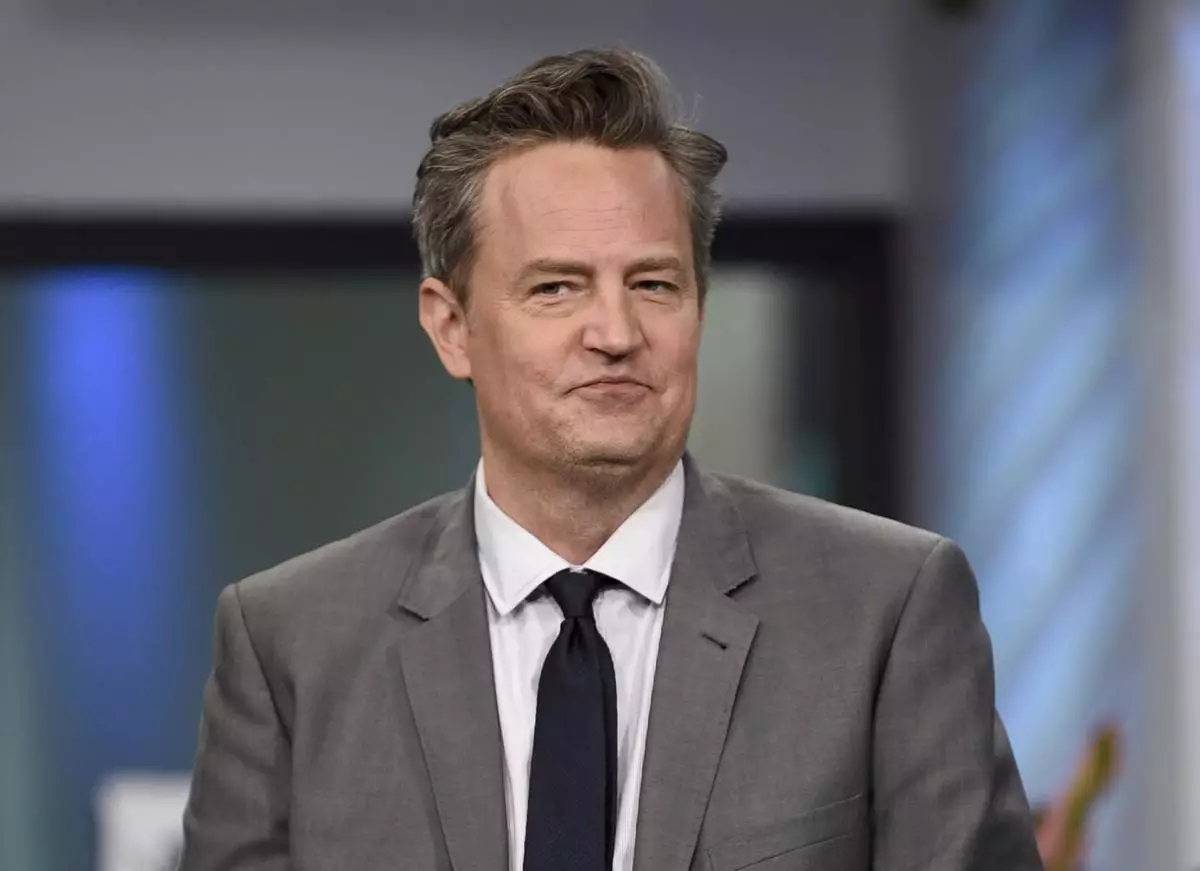
FILE - Actor Matthew Perry participates in the BUILD Speaker Series to discuss the mini-series "The Kennedys After Camelot" in New York on March 30, 2017. (Photo by Evan Agostini/Invision/AP, File)
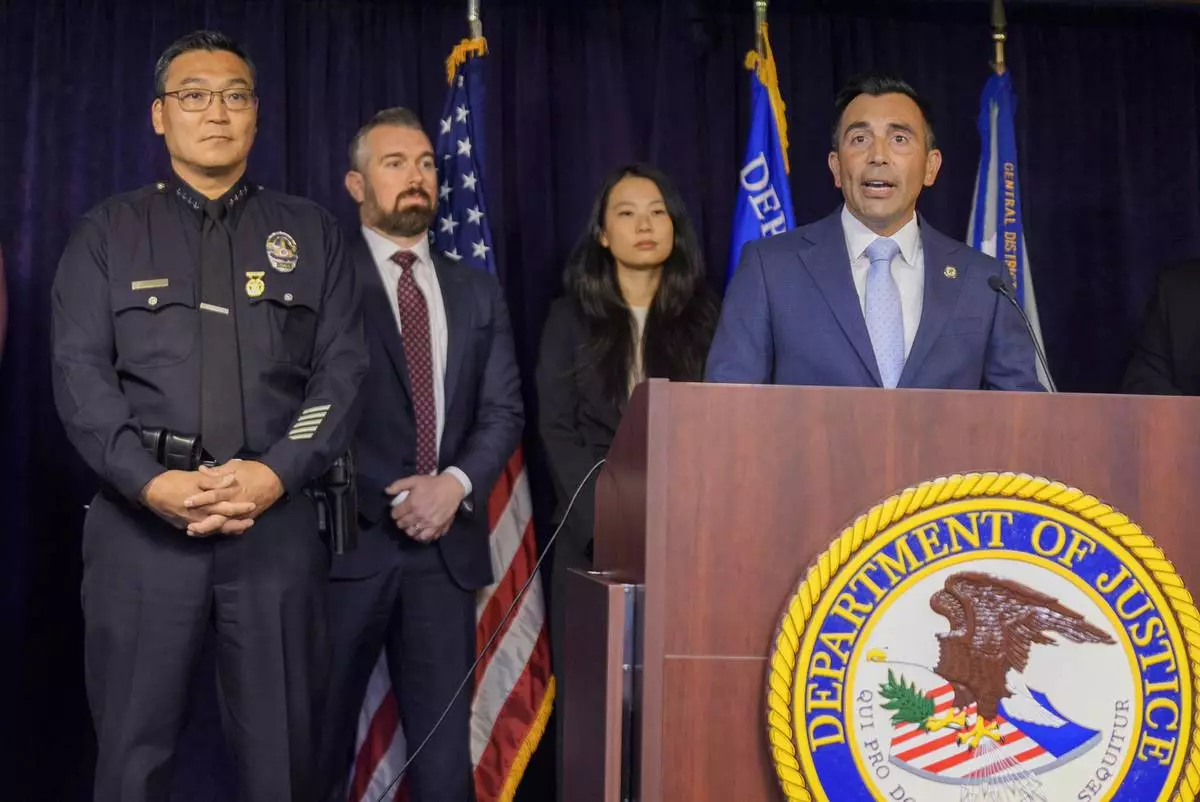
United States Attorney Martin Estrada, at podium, is joined by Los Angeles Police Chief Dominic Choi, far left, and other officials to announce court filings related to the death of actor Matthew Perry in Los Angeles on Thursday, Aug. 15, 2024. (AP Photo/Damian Dovarganes)
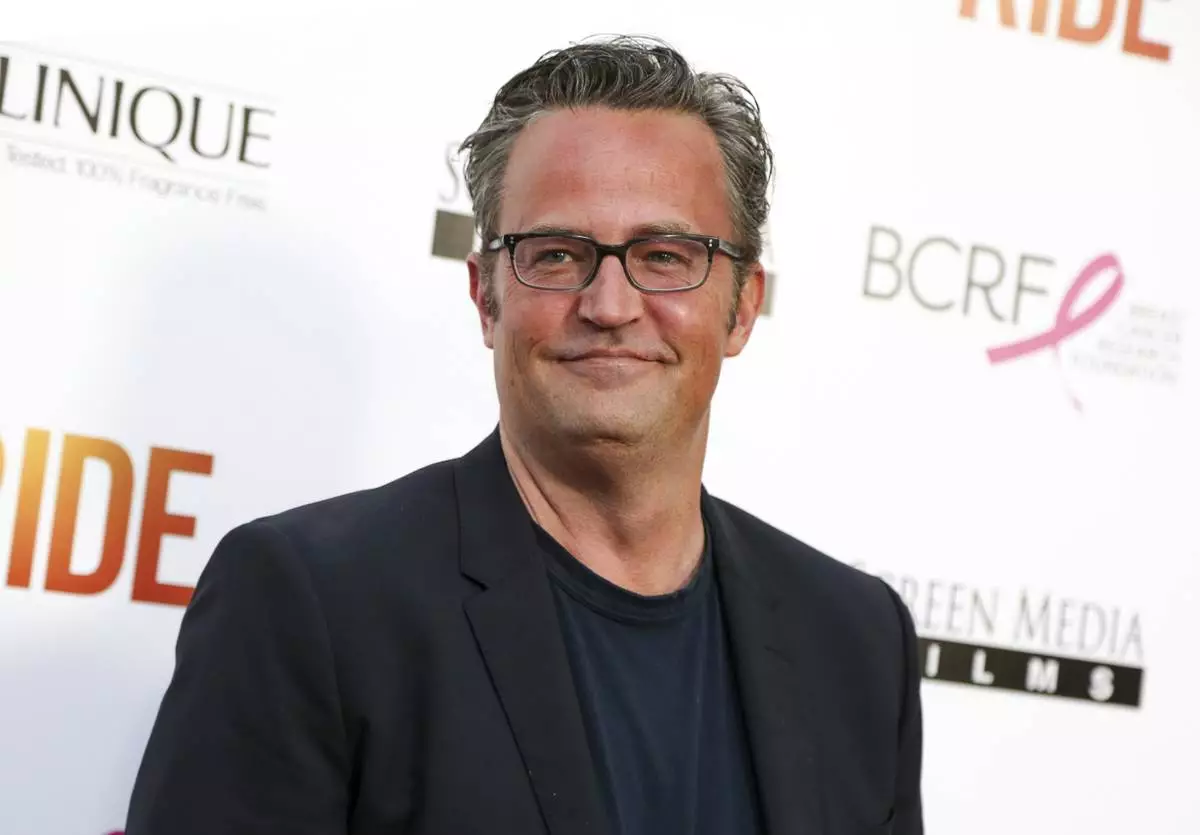
FILE -Matthew Perry appears at the premiere of "Ride" in Los Angeles on April 28, 2015. (Photo by Rich Fury/Invision/AP, File)
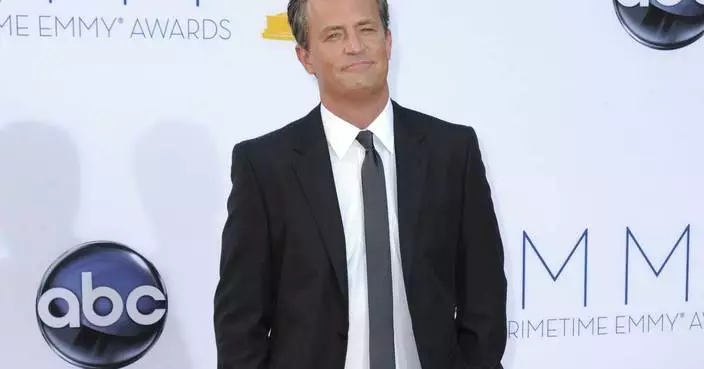
'Shoot me up with a big one': A timeline of the last days of Matthew Perry
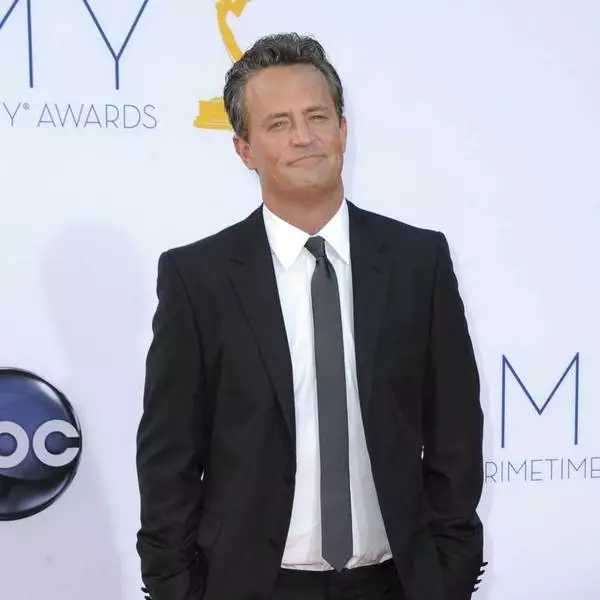
'Shoot me up with a big one': A timeline of the last days of Matthew Perry
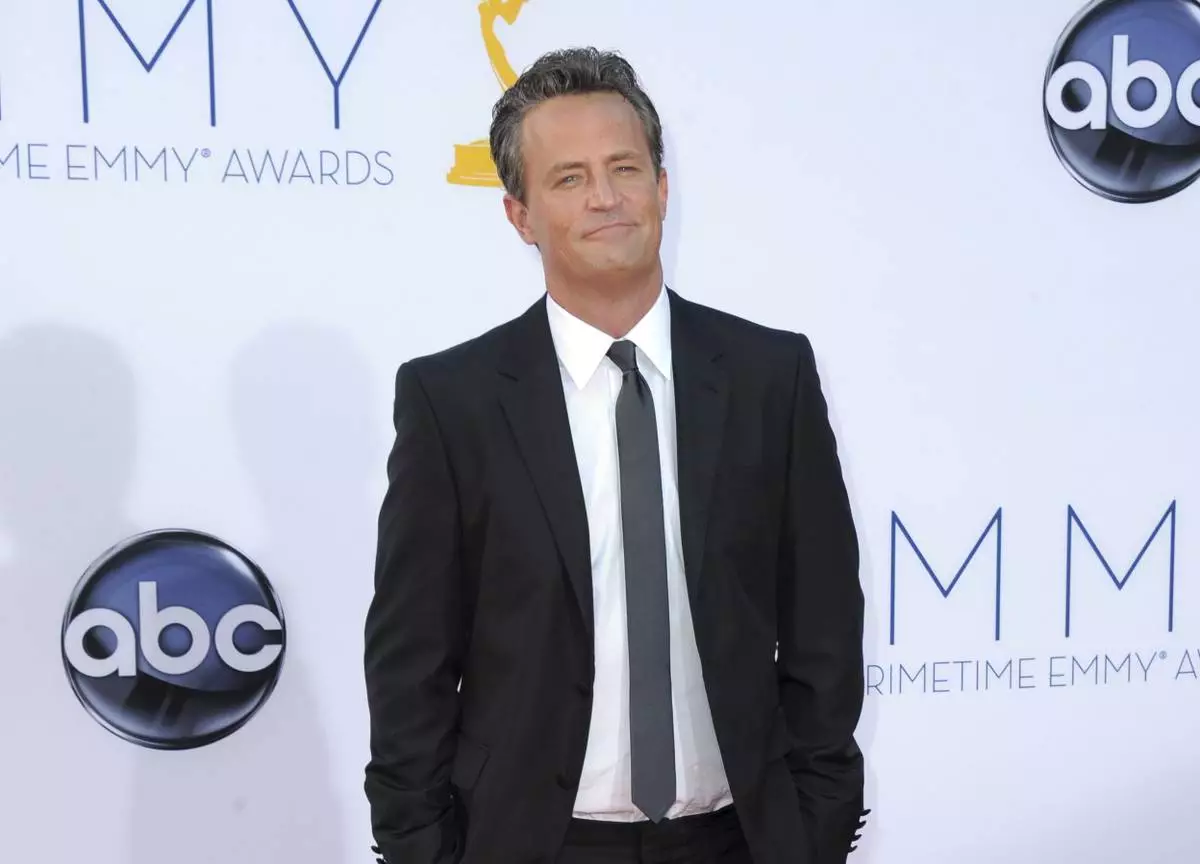
FILE - Actor Matthew Perry arrives at the 64th Primetime Emmy Awards in Los Angeles on Sept. 23, 2012. (Photo by Jordan Strauss/Invision/AP, File)
India accused Pakistan of repeatedly violating the ceasefire agreed earlier on Saturday in the disputed territory of Kashmir.
Indian Foreign Secretary Vikram Misri said late on Saturday that “there had been repeated violations of the understanding arrived between the two countries” on ceasing fire and accused Pakistan of breaching the agreement.
Pakistan’s foreign ministry blamed Indian forces for initiating the ceasefire violation and said Islamabad remained committed to the agreement.
Earlier, the two sides reached a ceasefire deal following US mediation after they fired volleys of missiles across their borders on Saturday. It was the most serious increase in hostilities so far in a conflict triggered by a gun massacre last month, for which India blames Pakistan.
Here is the latest:
Pakistan’s Foreign Ministry on Saturday night blamed Indian forces for initiating the ceasefire violation.
In a statement, it said Pakistan remains committed to the ceasefire agreement and said Pakistani forces were handling the situation with responsibility and restraint.
“We believe that any issues in the smooth implementation of the ceasefire should be addressed through communication at appropriate levels,” the ministry said. “The troops on the ground should also exercise restraint."
———
Pakistan's Prime Minister Shehbaz Sharif said Saturday that Islamabad has responded positively to a proposed ceasefire with India in the larger interest of peace in the region, and hoped all the outstanding issues with India, including the Kashmir dispute, would be resolved through peaceful dialogue.
He made his remarks in a televised address to the nation, hours after Pakistan and India agreed to the ceasefire following a sudden escalation in tensions, which had raised fears for a wider conflict.
Sharif thanked U.S. President Donald Trump, China, and other friendly countries like Qatar, UAE, Saudi Arabia, and Turkey for their role in defusing tensions.
He praised the armed forces, saying Pakistan’s military made a fitting response when India launched missile attacks overnight. “Our pilots silenced the Indian military’s guns within hours,” Sharif said.
———
Indian Foreign Secretary Vikram Misri said late Saturday that “there had been repeated violations of the understanding arrived between the two countries” on ceasing fire and accused Pakistan of breaching the agreement.
“We call upon Pakistan to take appropriate steps to address these violations and deal with the situation with seriousness and responsibility,” he said at a news conference in New Delhi.
Misri said the Indian army was “retaliating” for what he called a “border intrusion.”
———
Pakistani and Indian troops on Saturday exchanged fire in Bhimber, a town along the Line of Control, the de facto border dividing the two sides in the disputed Himalayan region of Kashmir, residents said.
While such cross-border skirmishes are common, the latest exchange occurred just hours after the two countries agreed to a ceasefire.
Residents in Pakistan-administered Kashmir reported that Indian artillery fire resumed after a pause of several hours in some areas.
Shahzad Iqbal, a local resident, said shells landed near villages, though he was not aware of any damage.
Multiple explosions were heard in two big cities of Indian-controlled Kashmir Saturday, hours after India and Pakistan agreed to a ceasefire deal following the U.S.-led talks to end the most serious military confrontation between the nuclear-armed rivals in decades.
Residents said the loud explosions in Srinagar and Jammu were followed by a blackout in the two cities.
Omar Abdullah, the region’s top elected official, said in a post on social media: “What the hell just happened to the ceasefire? Explosions heard across Srinagar!!!” In another post, he said: “This is no ceasefire. The air defence units in the middle of Srinagar just opened up.”
Cross-border shelling and gunfire were also reported from at least five places along the Line of Control, a de-facto frontier that divides disputed Kashmir between two nuclear-armed nations.
Visuals shot by AP photojournalists in Srinagar showed red projectiles going up from the ground and colliding with objects flying over the sky and emitting red flares.
There were no immediate reports of casualties.
A drone was spotted over the northwestern Pakistani city of Peshawar on Saturday night, prompting authorities to activate the air defense system, according to residents.
There was no immediate comment from the military or government.
An Associated Press reporter heard anti-aircraft gunfire, but it remained unclear who operated the drone.
Pakistani Prime Minister Shehbaz Sharif said on X: “We thank President Trump for his leadership and proactive role for peace in the region. Pakistan appreciates the United States for facilitating this outcome, which we have accepted in the interest of regional peace and stability.
"We also thank Vice President JD Vance and Secretary of State Marco Rubio for their valuable contributions for peace in South Asia.
"Pakistan believes this marks a new beginning in the resolution of issues that have plagued the region and prevented its journey toward peace, prosperity and stability.”
———
Pakistan’s Foreign Ministry said on Saturday that Islamabad and New Delhi have agreed to a ceasefire understanding following a recent escalation in tensions.
In a statement, the ministry said Pakistan was compelled to retaliate after what it described as “unprovoked and unlawful Indian aggression,” alleging that India launched missile strikes across multiple locations along the international border, resulting in civilian casualties.
“Despite facing blatant Indian aggression and persistent provocations, Pakistan exercised great restraint,” the statement said. It said Pakistan’s response targeted only those locations from where its airbases had come under missile attack.
The ministry emphasized that Pakistan remains open to constructive diplomacy and comprehensive dialogue with India to resolve all outstanding issues, including the Kashmir dispute.
———
Chinese Foreign Minister Wang Yi spoke with his Pakistani counterpart, Ishaq Dar, to reaffirm Beijing’s continued support for Islamabad, Pakistan’s Ministry of Foreign Affairs said in a statement.
It said Wang commended Pakistan for exercising restraint and praised its responsible approach during a period of heightened tension with India.
“He reaffirmed that China, as Pakistan’s All-Weather Strategic Cooperative Partner and ironclad friend, will continue to stand firmly by Pakistan in upholding its sovereignty, territorial integrity, and national independence,” the statement quoted Wang as saying.
It was not immediately clear whether the conversation took place before or after Pakistan and India agreed to a ceasefire following a recent spike in hostilities.
———
Paul Staniland, south Asia expert and a professor of political science at the University of Chicago, told The Associated Press that the ceasefire is “a clear signal of de-escalation and will hopefully end the direct fighting for the near future.”
“Ideally, this leads to a new period of relative stability and quiet in the region,” he said, adding that “it is certainly possible the ceasefire will hold since the two countries had entered risky and costly territory that they will probably not be in a hurry to revisit quickly.”
Staniland said India would largely resist crediting the Trump administration for the truce and ignore broad talks on issues like Kashmir.
———
Raghu R. Nair, an Indian navy commodore, told a news conference Saturday that the Indian armed forces will adhere to the understanding reached on the ceasefire, but they “remain fully prepared, ever vigilant and committed to defending the sovereignty and integrity of the motherland.”
“Every misadventure by Pakistan has been met with strength. And every future escalation will invite a decisive response. We remain fully operationally ready to launch whatever operations may be required in defense of the nation,” said Nair.
———
Chanting slogans of “Long Live Pakistan,” people in many cities welcomed the ceasefire with India, calling it a moment of national pride and relief after days of heightened tension.
“This is a big day for Pakistan,” said Mohammad Fateh, a young man in the city of Lahore. “Our forces responded with strength, and India had no choice but to agree to a ceasefire."
In Islamabad, Zubaida Bibi, a 45-year-old housewife, expressed joy at the restoration of peace with India, saying, “War brings nothing but suffering. We are happy that calm is returning. It feels like Eid to me. We have won."
In the northwest of Pakistan, in the city of Peshawar and tribal areas bordering Afghanistan, some people fired guns in the air to celebrate the ceasefire.
In Muzaffarabad, the capital of Pakistan-administered Kashmir, residents welcomed the ceasefire, hoping it would bring long-awaited relief to a region that has borne the brunt of recurring conflict.
“For us, peace means survival,” said Zulfikar Ali, a resident. “We’ve suffered enough. I’m glad that both Pakistan and India have made a sensible decision.”
———
Pakistan has fully reopened its airspace for all types of flights, the country’s airports authority said Saturday.
In a statement, it said: “All airports across the country are now available for regular flight operations.”
Pakistan’s Foreign Minister Ishaq Dar announced the ceasefire on Geo News.
He said Saudi Arabia and Turkey played an important role in facilitating the deal, which came into effect at 4.30 p.m. local time (1130GMT).
U.S. President Donald Trump said Saturday India and Pakistan agreed to a ceasefire after U.S.-mediated talks.
On his Truth Social platform, Trump said he was pleased to announce that India and Pakistan had agreed to a full and immediate ceasefire. “Congratulations to both Countries on using Common Sense and Great Intelligence. Thank you for your attention to this matter!”
India and Pakistan confirmed the ceasefire deal following US mediation.
Foreign ministers from the Group of Seven major industrialized democracies have issued a statement calling for the “immediate de-escalation’’ of hostilities between India and Pakistan.
The ministers condemned the April 22 attack by militants in the Indian-controlled section of Kashmir that triggered the current outbreak of violence, while warning that further escalation threatened regional stability.
“We are deeply concerned for the safety of civilians on both sides,” the ministers said in a joint statement released on Saturday. “We call for immediate de-escalation and encourage both countries to engage in direct dialogue towards a peaceful outcome.”
The G7 members are Canada, France, Germany, Italy, Japan, the United Kingdom and the United States, along with the European Union.
Most shops and businesses were open but traffic was thin on the roads in Srinagar, the main city in Indian-controlled Kashmir, which was rattled by multiple loud explosions Saturday. Government forces, wearing body armor and carrying automatic rifles, erected additional checkpoints on the main road leading to the city’s airport, a part of which also serves as an Indian air force station.
Many residents living close to the airport fled in fear of attacks.
The Indian military said it was among three air bases that came under Pakistani attack early Saturday.
Local resident Munir Ahmed and his family fled their home as they didn’t feel safe, he said.
“We did not want to take any chances as my daughter is in her late pregnancy,” Ahmed said.
Authorities have already closed schools and other educational institutions across the region until Tuesday.
Most shops and businesses were shut in the region’s Jammu city, which witnessed Pakistan’s Saturday strike and drone attacks for the past two nights. Anxious residents said police drove through some neighborhoods and asked shopkeepers to close businesses and stay indoors as a precautionary measure
A Pakistan official says at least 11 people were killed and 56 others wounded in what he said was Indian shelling in several areas near the Line of Control in the disputed Himalayan region of Kashmir.
Mazhar Saeed, the information minister for Pakistan-administered Kashmir, said Saturday that the casualties occurred overnight following an intense exchange of fire between Pakistani and Indian forces. He accused Indian troops of deliberately targeting civilians, saying artillery fire destroyed about 200 homes between Friday night and Saturday morning.
The wounded were being treated at various hospitals, he added.
There was no way to independently confirm the figures.
Pakistan’s Prime Minister Shehbaz Sharif on Saturday told the country’s political leaders in separate calls that “we have given India a befitting response and avenged the blood of our innocent citizens” following what he said were repeated Indian strikes on civilians.
India has denied hitting civilian targets.
In a statement, his office said Sharif said Pakistan had shown “extreme restraint” in the face of Indian provocations.
He said Pakistan responded after India’s overnight missile attacks at air bases and other places.
Pakistan’s foreign minister said on Saturday that his country would consider de-escalation if India stopped any further attacks.
However, Ishaq Dar warned that if India launched any further strikes, “our response will follow.”
Dar told Pakistan’s Geo News that he also conveyed this message to U.S. Secretary of State Marco Rubio when he contacted him after speaking to New Delhi.
“We responded because our patience had reached its limit. If they stop here, we will also consider stopping,” he said.
Wing Commander Vyomika Singh, who was also present at the news conference, said India was committed to “non-escalation," if Pakistan reciprocates. However, Pakistani ground forces were observed mobilizing towards forward areas, she said, “indicating offensive intent to further escalate the situation.”
“Indian armed forces remain in a high state of operational readiness,” she added.
Singh said Indian armed forces carried out “precision strikes only at identified military targets in response to Pakistani actions.”
“All hostile actions have been effectively countered and responded proportionately,” she said.
India has said that it targeted Pakistani military bases after Islamabad fired several high-speed missiles at multiple air bases in India's Punjab state early Saturday.
Indian Col. Sofiya Qureshi, at a news conference in New Delhi, said Pakistan also targeted health facilities and schools at its three air bases in Indian-controlled Kashmir.
“Befitting reply has been given to Pakistani actions,” she said.
The Pakistani army’s actions were “provocation” and India’s response was “measured,” foreign secretary Vikram Misri said.
India’s Border Security Force in a statement Saturday said that Pakistani troops resorted to “unprovoked” firing along the International Border in the Jammu region overnight. The BSF said it responded to the firing and destroyed what it called a “terror launch pad” at Looni in Pakistan’s Sialkot district, adding that Indian troops caused “widespread damage to the posts and assets” of Pakistan border guards.
It offered a video footage to support its claim. The incident couldn’t be independently verified.
A spokesman for the Indian air force, Wing Commander Jaideep Singh, denied the claims made by Pakistan that it had destroyed an S-400 air defense system in Adampur, Punjab, using hypersonic missiles.
“Its fake. A fact-check will be up soon by the Press Information Bureau,” he told AP.
Pakistan earlier said one of it air force JF-17 Thunder aircraft launched hypersonic missiles and had destroyed the site.
There was no way to independently verify the attack.
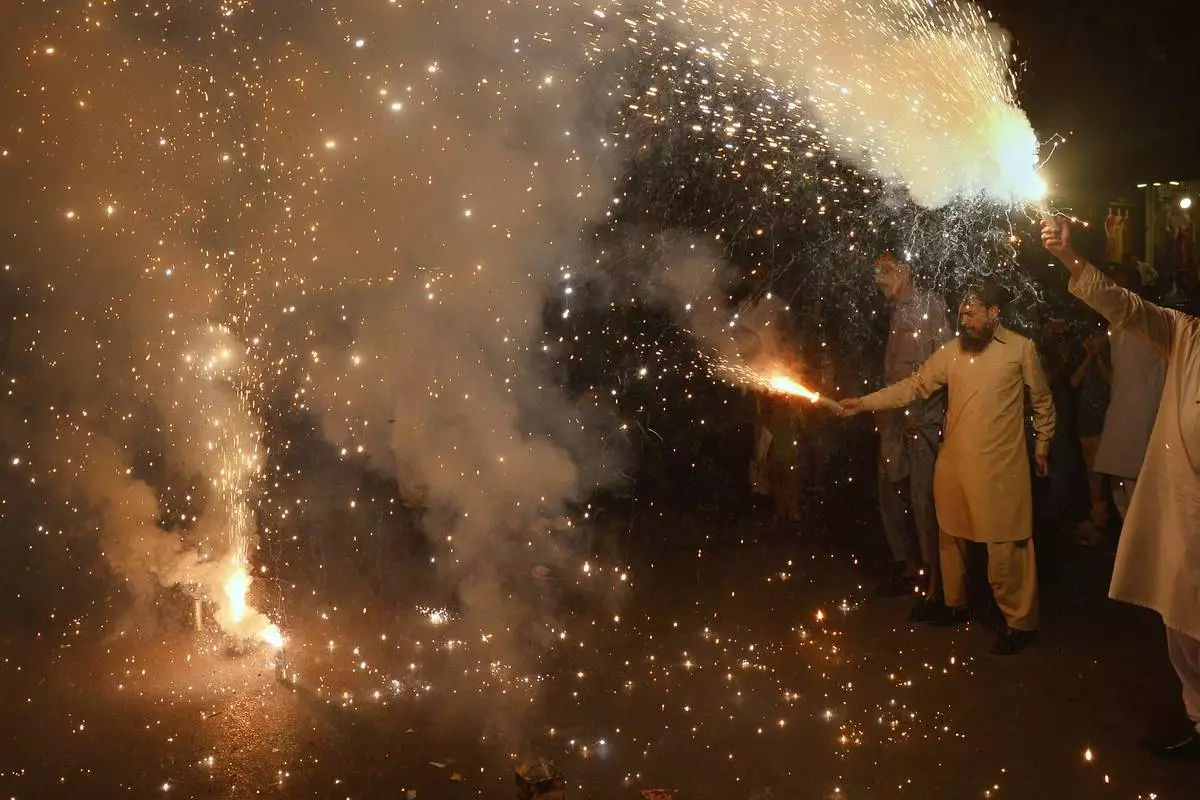
People light fireworks to celebrate Pakistan and India reaching a ceasefire deal, during a demonstration in Hyderabad, Pakistan, Saturday, May 10, 2025. (AP Photo/Pervez Masih)
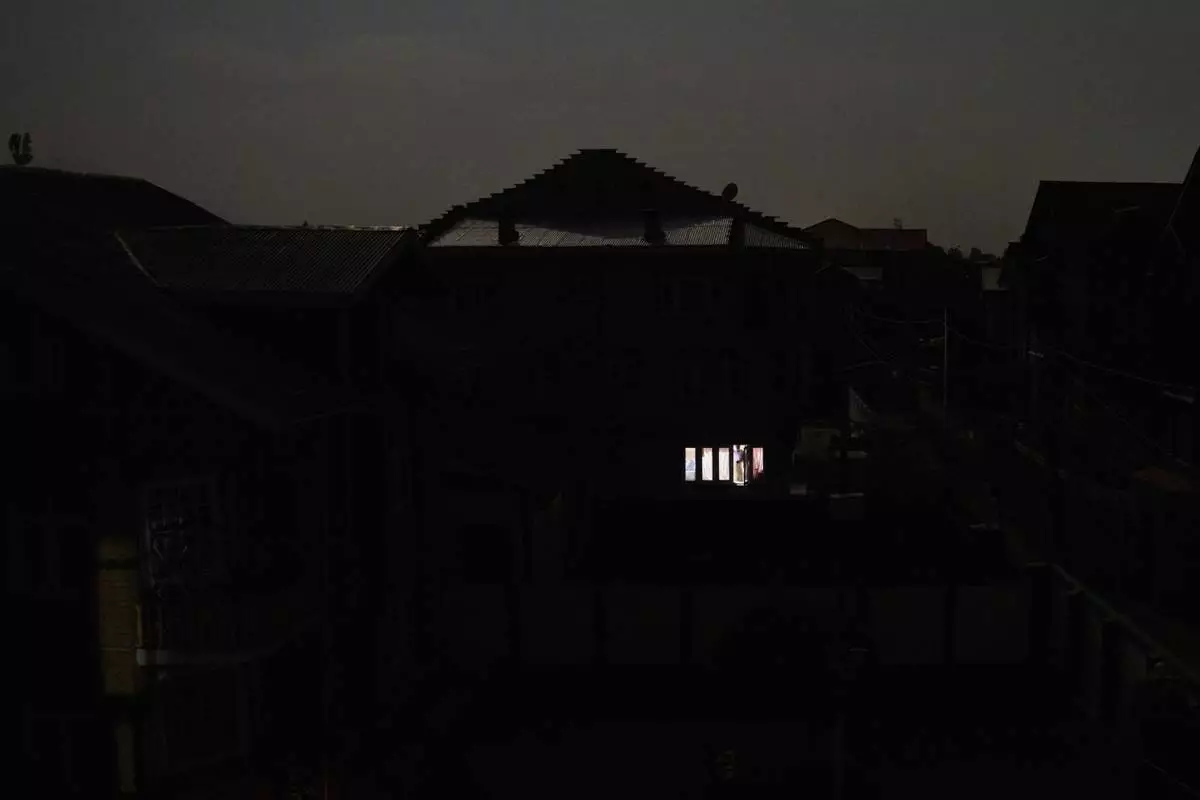
A Kashmiri man looks out from the window of his house during blackout after the residents of the Srinagar reported hearing explosions in Srinagar, Indian controlled Kashmir, Saturday, May 10, 2025.(AP Photo/Dar Yasin)
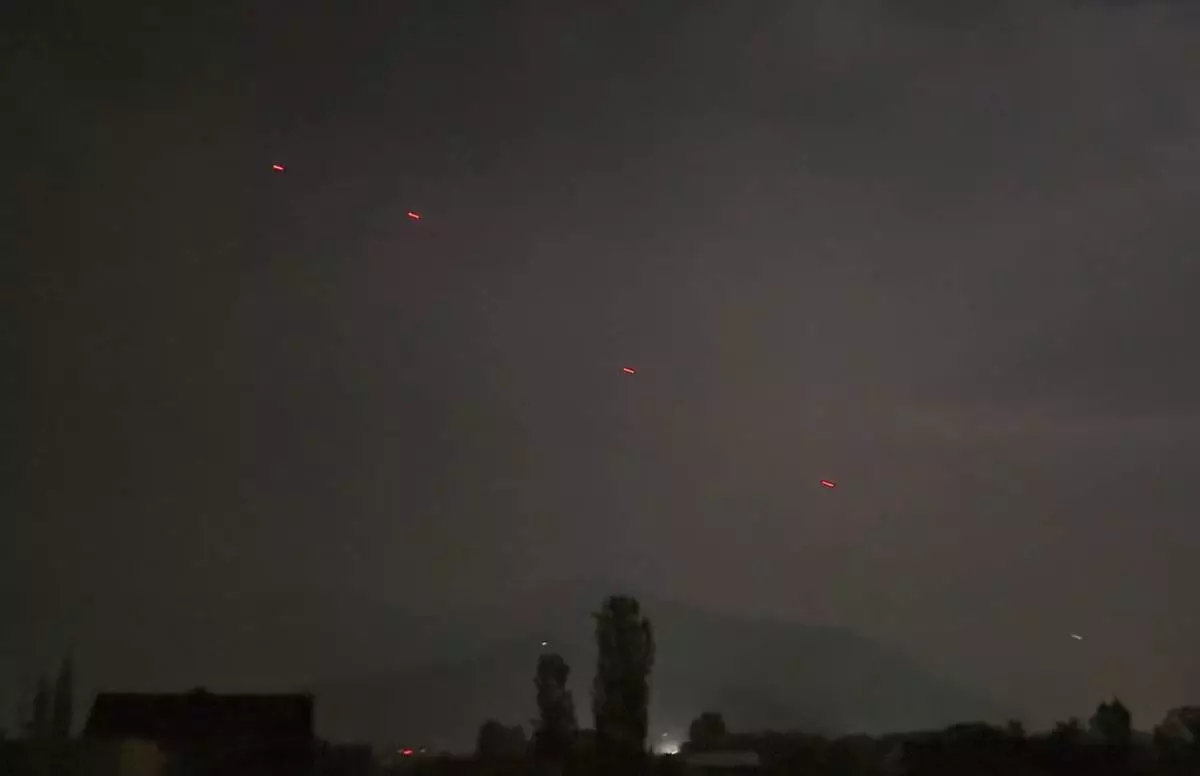
Red projectiles are seen over Srinagar, in Indian controlled Kashmir, Saturday, May 10, 2025. (AP Photo/Mukhtar Khan)
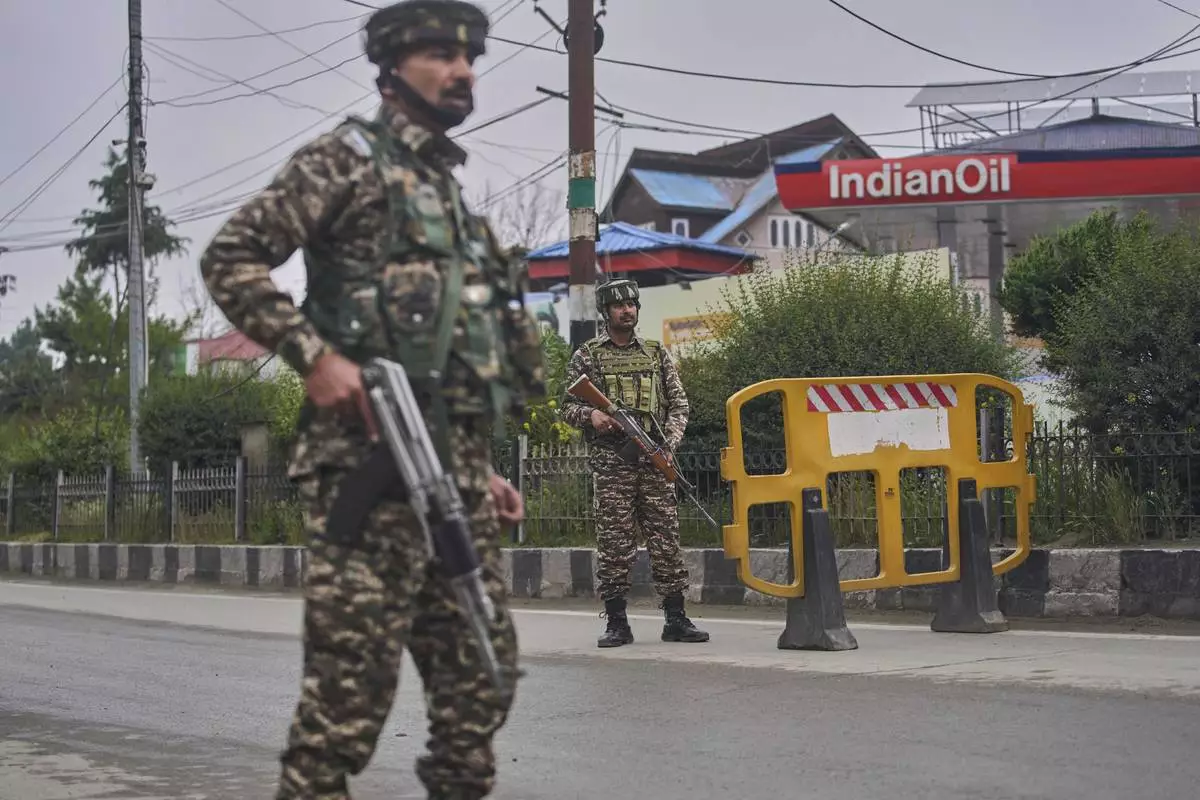
Indian paramilitary soldiers stands guard at a temporary check point on a road leading to the airport after loud explosions were heard in Srinagar, in Indian controlled Kashmir, Saturday, May 10, 2025.(AP Photo/Dar Yasin)
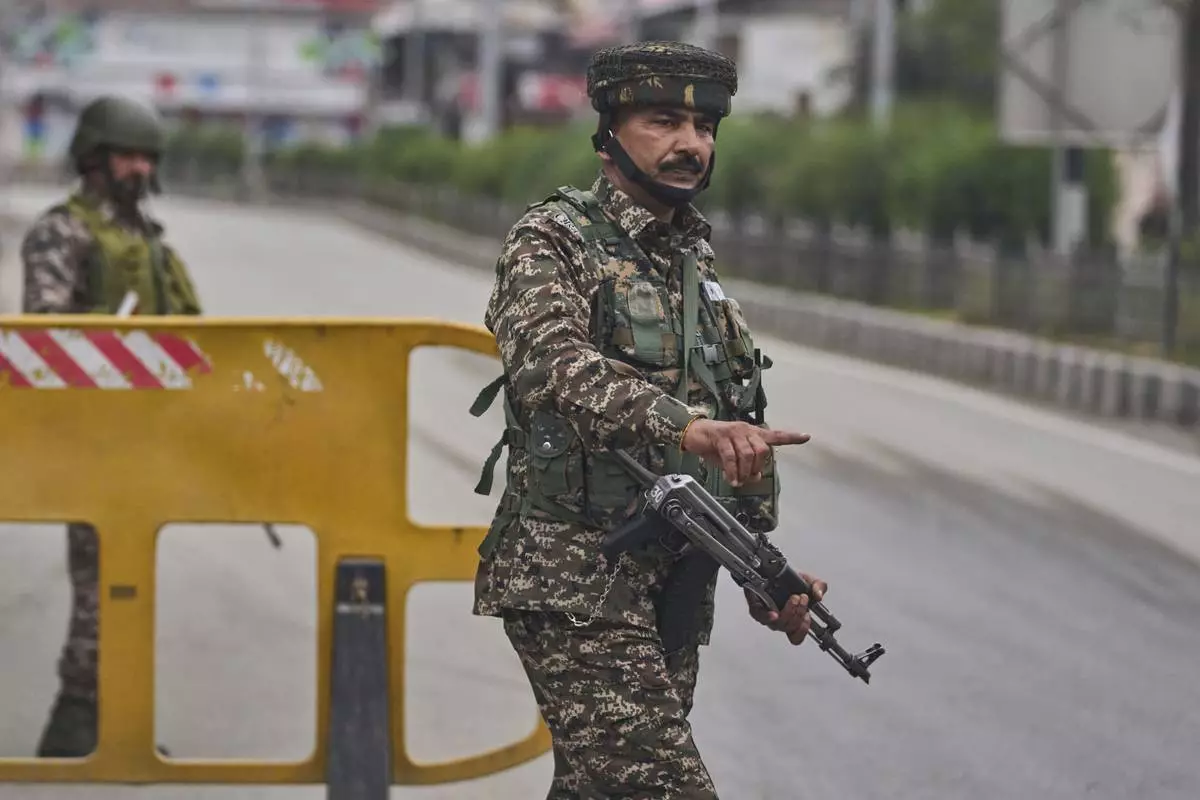
A paramilitary soldier signals to a Kashmiri man to stop at a temporary checkpoint on the road leading to airport after loud explosions were heard in Srinagar, in Indian controlled Kashmir, Saturday, May 10, 2025.(AP Photo/Dar Yasin)
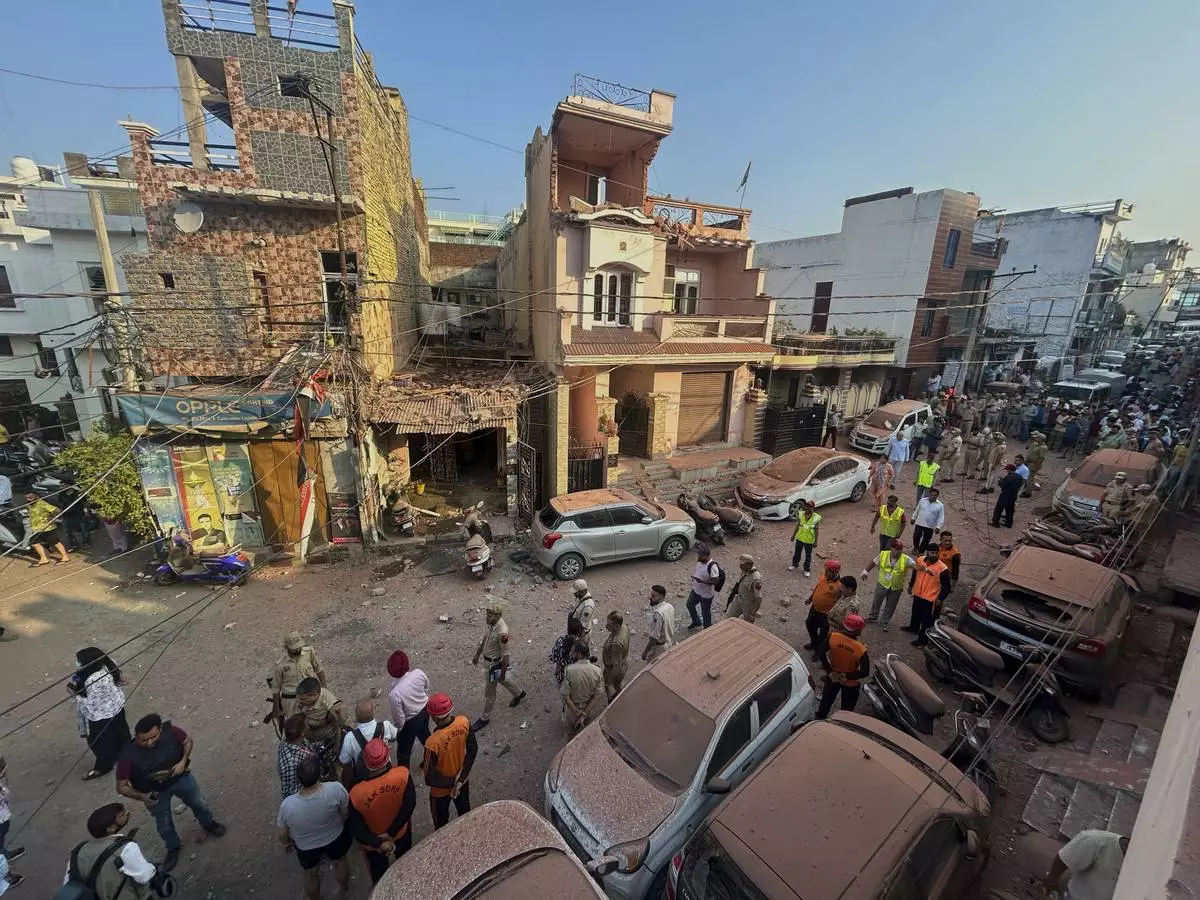
Rescuers and security personnel inspect a residential building damaged by a Pakistan's drone attack in Jammu, India, Saturday, May 10, 2025. (AP Photo/Channi Anand)
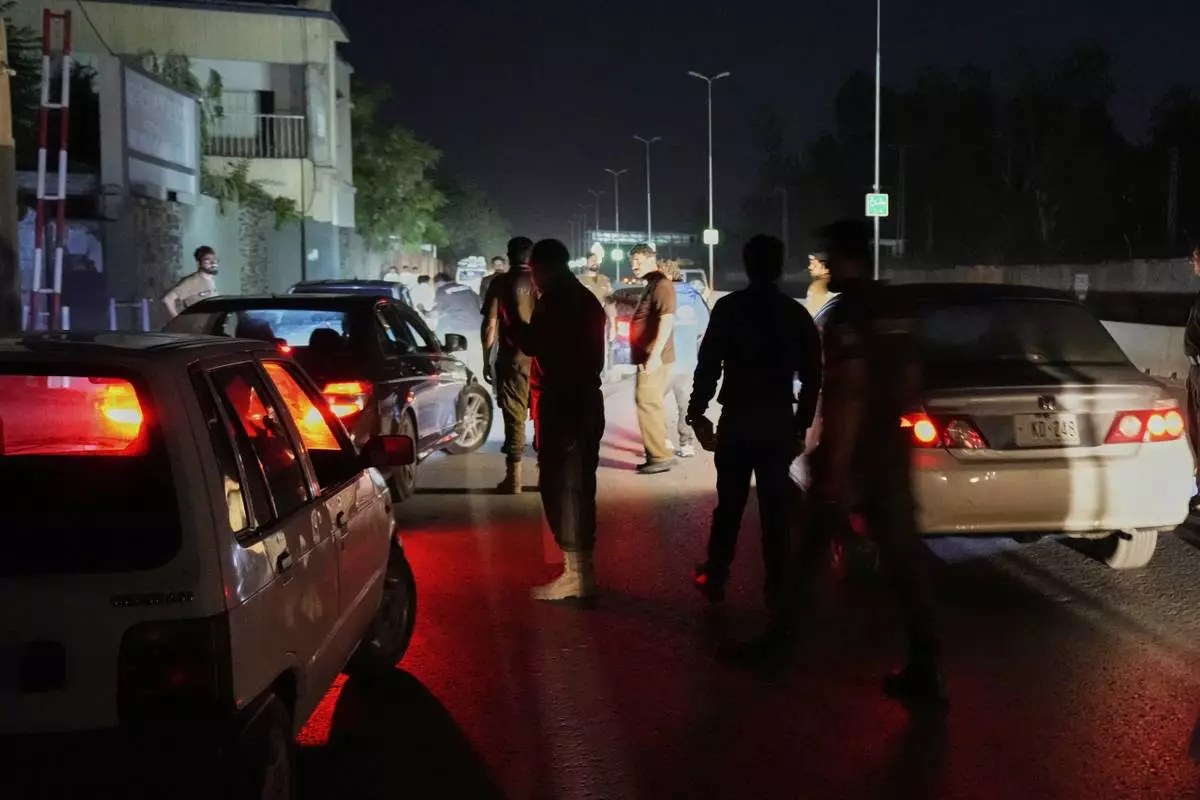
Pakistani police officers remove vehicles and people from the main entry of Nur Khan airbase following an Indian missile strike in Rawalpindi, Pakistan, Saturday, May 10, 2025. (AP Photo/Anjum Naveed)
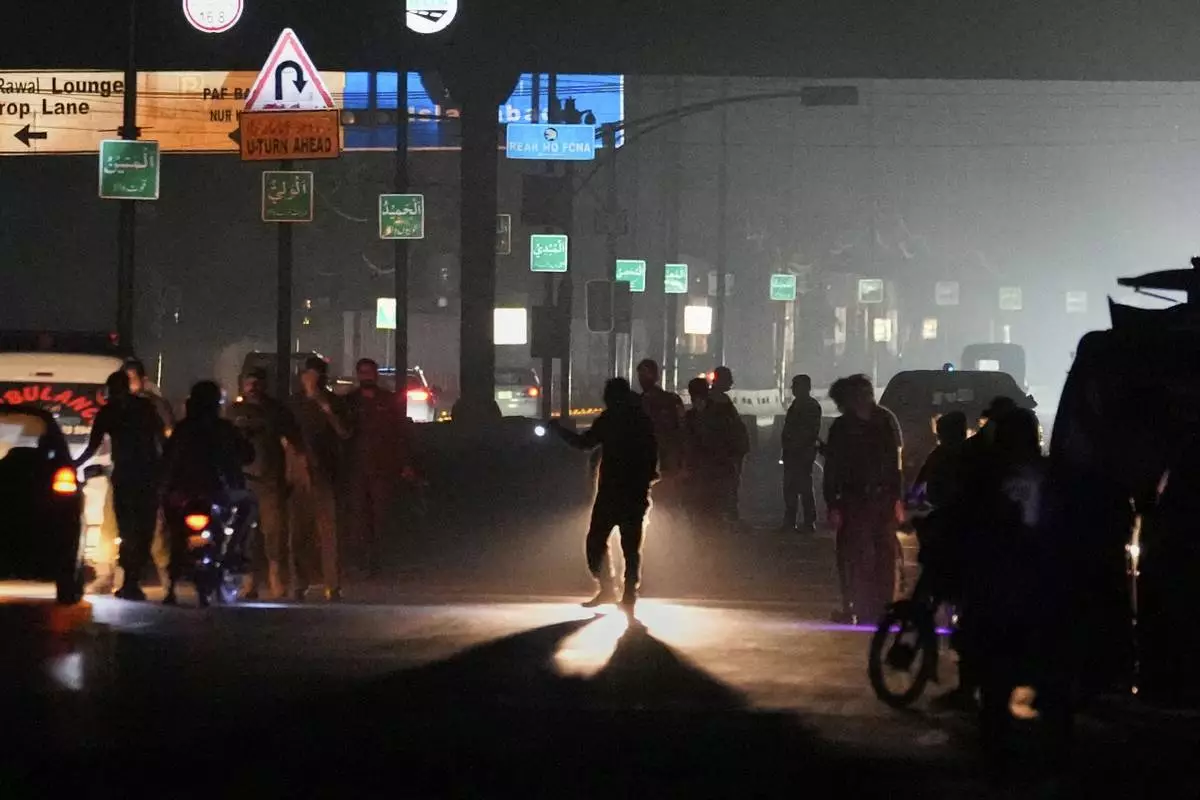
Police officers remove vehicles and people from the main entry of Nur Khan airbase following Indian missile strike on airbase, in Rawalpindi, Pakistan, Saturday, May 10, 2025. (AP Photo/Anjum Naveed)
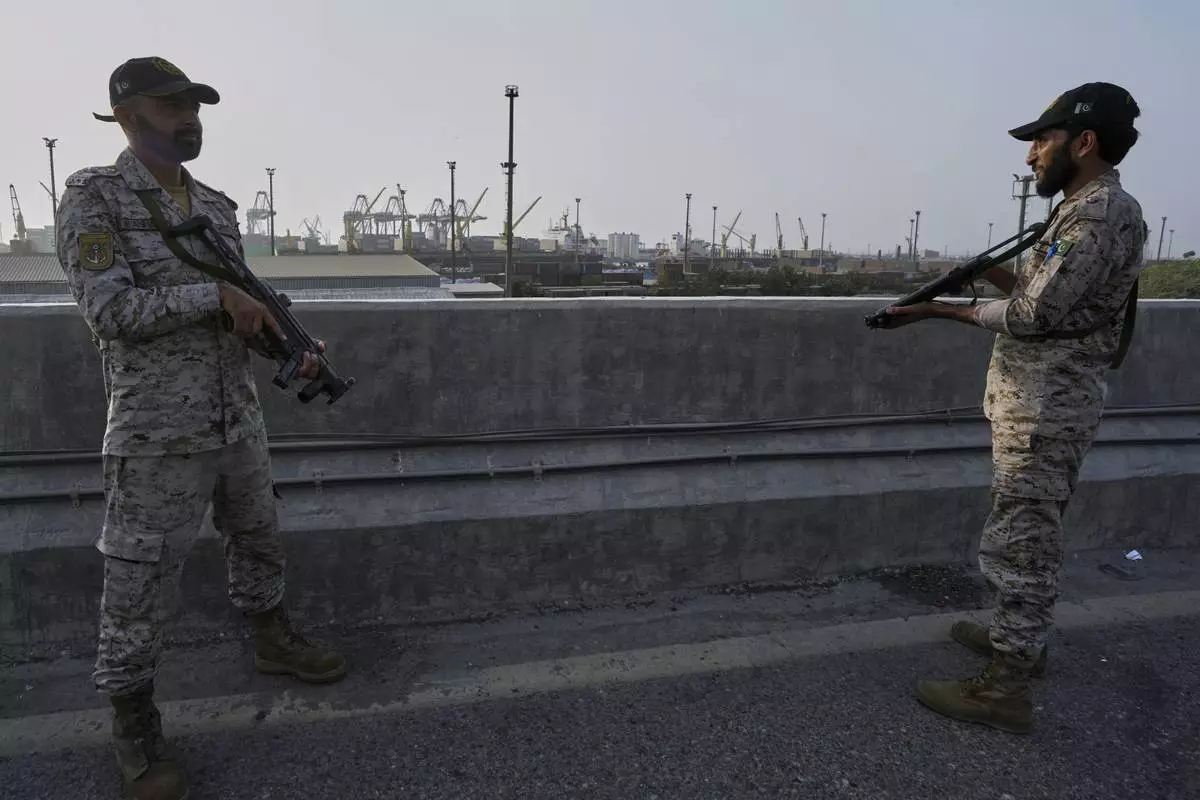
A paramilitary soldier stand alert on a road near Karachi port following raising military tension between Pakistan and India, in Karachi, Pakistan, Friday, May 9, 2025. (AP Photo/Fareed Khan)
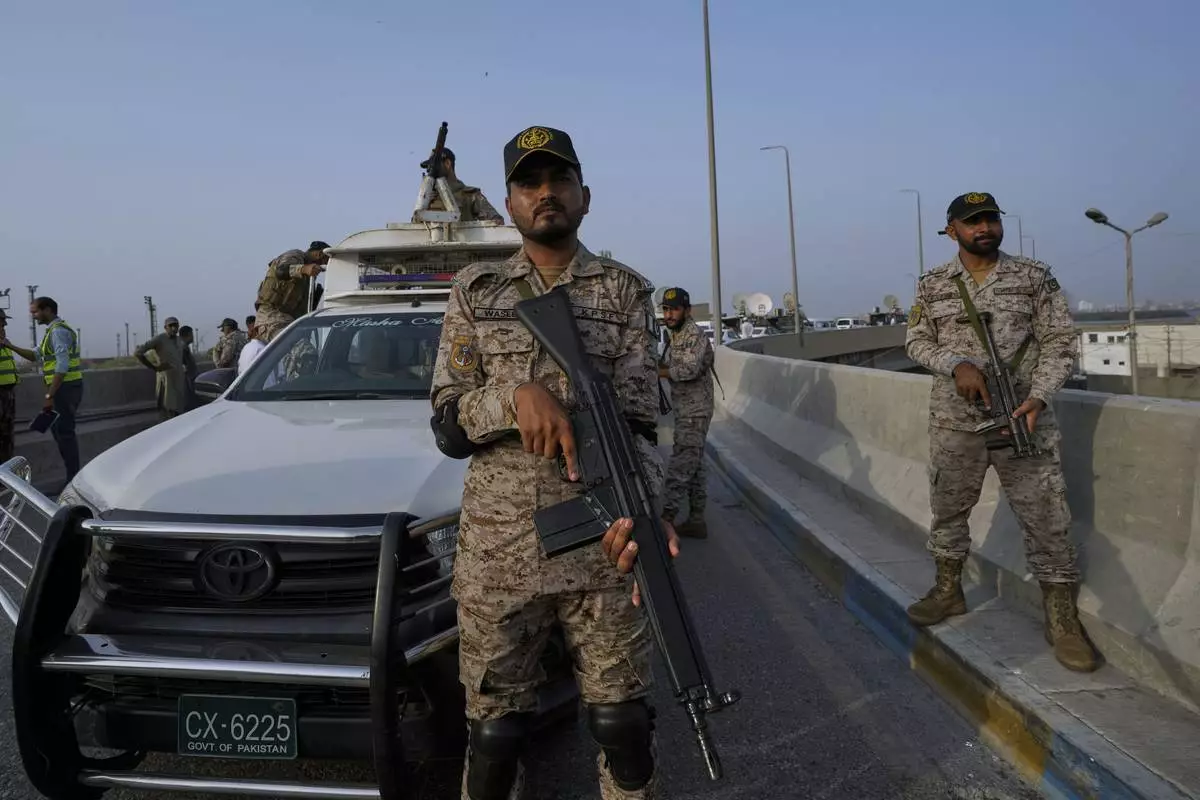
A paramilitary soldier stand alert on a road near Karachi port following raising military tension between Pakistan and India, in Karachi, Pakistan, Friday, May 9, 2025. (AP Photo/Fareed Khan)























